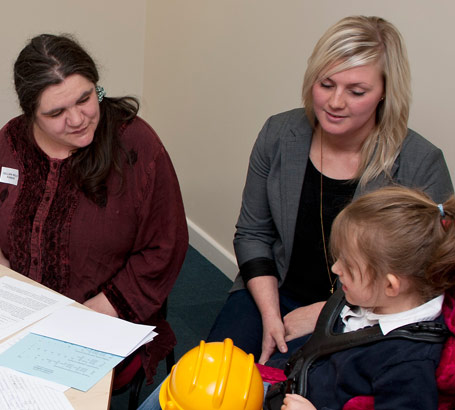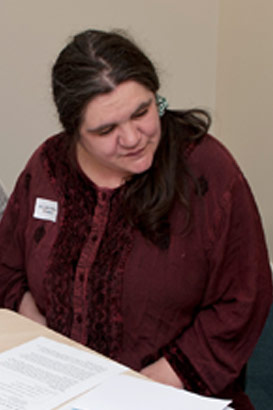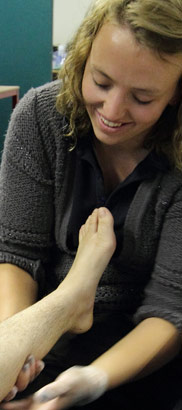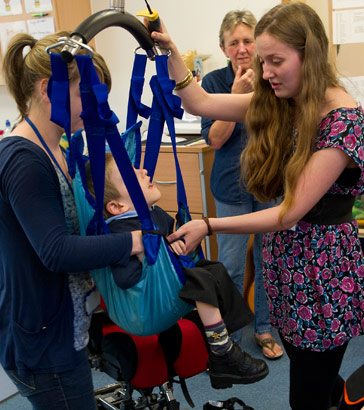
... close families are very important to our well-being and happiness.
To a child... with profound learning disabilities, their family also provides
very significant levels of practical care and commitment, day by day,
year by year. Research shows that, on average, these family carers carry
out personal care tasks like washing, toileting or eating & drinking for
between 7.5 and 10 hours daily.
PAMIS, 2011
Disabled children and their families face a unique and often challenging
set of circumstances that demand a unique and sometimes specialised response
from both the universal and targeted services that support them. It is
essential that they are able to influence the design and delivery of services
which should be responsive to their needs.
HM Treasury/Department for Education and Skills, 2007
Parents should be partners in providing personal/intimate care for their son/daughter so that their knowledge and understanding is shared (particularly important in the area of personal/medical care) and the child has continuity and consistency of support. Communication with families can establish the level of skills already achieved by the child and their likes and dislikes.

Carnaby and Mallet (2006) suggest that collaboration between schools and parents may involve:
- Developing their son/daughter's health care plan/protocols.
- Telephone conversations.
- Modelling personal/intimate care tasks for staff.
- Delivering staff training.
Trust is more likely to be developed when effort is put into building
open and transparent communication around the child's needs, giving the
parent or carer opportunities for sharing their concerns and anxieties
as well as providing key information about the nature of support required.
Carnaby and Mallet, 2006
Parents may have mixed feelings around others providing personal and
intimate care for their son/daughter including
(Carnaby and Mallet, 2006):
- Guilt about not coping.
- Concerns about intimate and personal care being provided in the right way.
- Worries about abuse.

In communicating with parents, staff need to understand their personal,
cultural and religious preferences and take account of these. Parents' confidentiality
and dignity needs to be respected, and staff must be aware of school policy
on sharing personal information.
Ongoing communication with families may be via a home-school diary for non-sensitive
information (e.g. what the child or young person has eaten/drunk, seizures
(if typical), etc., as well as achievements). However, communication about
significant or sensitive issues should be by telephone, sealed letter or
personal contact as appropriate.
The Highland Council Integrated Children's Services, 2009

School policies will describe the need to have signed consent from parents before carrying out certain activities/interventions on their behalf for their son/daughter, including:
- Administration of medication and medical/health procedures (including formal assessments, allied health professional involvement, etc.)
- Personal and intimate care.
- Physical restraint.
- Other interventions in which there is significant physical contact (eg hydrotherapy, massage, etc.)
- Disclosure of personal information.
- Sexuality and relationship education.

It is not always possible for families to work to agreed targets or allow
time for children to achieve tasks independently alongside other family
demands.
While parents need to be fully informed and comfortable about procedures
at school they may manage some aspects differently at home (e.g. staff MUST
use hoists to lift children and young people, but parents may use other
ways).
Some families find it difficult to contemplate particular interventions
(e.g. a gastrostomy). The role of the school is to work closely with medical
professionals to make the best decisions with the child and their family.
It is the responsibility of school staff to be proactive in developing collaboration with parents.
Listen to the audio clips of parents talking about the way they work with
the school and then to a headteacher talking about work with families.
What strategies are mentioned in the audio pieces which support communication
between the school and the family?
Proactive collaboration (2)
-
 Parent (1)1:08A parent talking about the way they work with their child's school
Parent (1)1:08A parent talking about the way they work with their child's school -
 Parent (2)1:10Another parent talking about the way they work with the school
Parent (2)1:10Another parent talking about the way they work with the school -
 Headteacher0:54A headteacher talking about their work with families
Headteacher0:54A headteacher talking about their work with families

Carnaby, S. and Mallett, A. (2006) Children and young people with learning
disabilities: developing good practice in intimate and personal care provision. In: S. Carnaby and P. Cambridge (eds)
Intimate and Personal Care with People
with Learning Disabilities. London: Jessica Kingsley.
